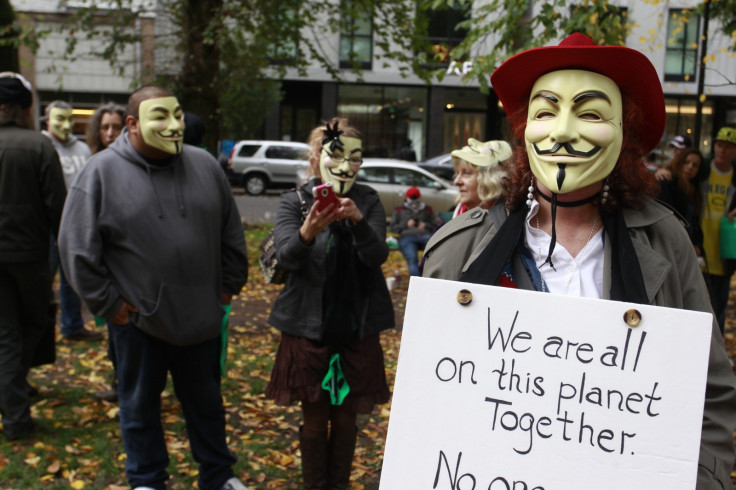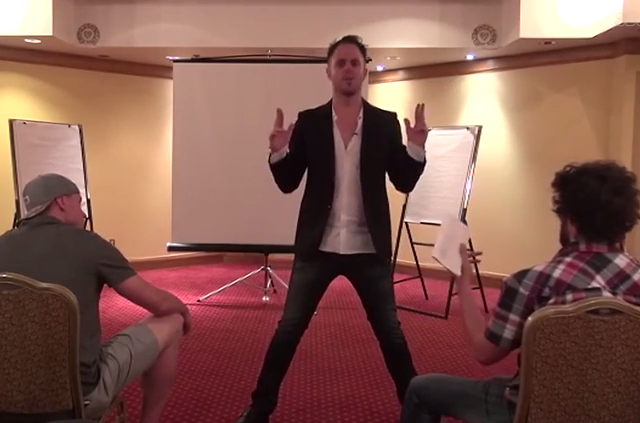Julien Blanc: How 'Racist and Sexist' Pick Up Artist Can Be Banned Without Committing a Crime

Britain's Home Secretary Theresa May is under pressure to ban entry for Julien Blanc after the techniques used by controversial 'pick up artist' (PUA) were deemed "racist and sexist".
US citizen Blanc, whose 'pick-up artist' techniques includes grabbing women's heads and pushing them towards his crotch, has already had to end his Australian leg of his tour after the country withdrew his visa.
But despite the public fury and calls for a ban, Blanc hasn't exactly committed or accused of committing a crime.
So, what does British immigration law tell us about how legitimate calls for a ban can be?
IBTimes UK decided to catch up with prominent immigration lawyer Aisha Choudhry to get the answers to the pertinent questions over immigration law in the UK.
Q: When does the Home Office usually exercise the power to refuse a visa to someone entering the country?
A: The Home Office can generally refuse most applications if they feel that the application or the applicant falls under the 'general grounds of refusal', which are set out in paragraph 320 of the Immigration Rules.
This can be done at the stage of the applicant's initial entry clearance application or in some situations after their visa has been granted.
If the Secretary of State wishes to do so, she can curtail or vary an applicant's leave even after they have entered the UK.
Q: Julien Blanc's case has inflamed the public opinion but he hasn't exactly committed a crime or an act of terrorism – so what grounds do people have to refuse his UK visa?
A: As mentioned above, paragraph 320 of the Immigration Rules can be used by an Entry Clearance caseworker to refuse the application if he/she deems the exclusion of the person from the UK to be conducive to the public good.
For example, because the person's conduct, character, associations, or other reasons, make it undesirable to grant them leave to enter the UK.
A caseworker must follow the criteria set by the Home Office in the following guidance.
Caseworkers must check the following regarding the applicant:
- adverse behavior
- non-conduciveness, adverse character, conduct or associations (criminal history, travel ban, non conduciveness to public good, a threat to national security)
- adverse immigration history
- adverse medical health
Q: Is it likely, due to the press coverage, that Blanc would be refused entry to the UK?
A: I have read that Blanc has already visited the UK in September of this year and it is not clear what visa he obtained to enter the UK on his previous trip and what type of application he will be making now.

If the Home Office is satisfied that entry to the UK should be refused based on Blanc's personal circumstances, then it may be refused but again, this is up to the individual caseworker.
Q: Will this mark a precedent in terms of who can be refused entry – even in the event of no crime committed?
A: This may not set a precedent, as every application is decided on a case by case analysis and an application could still be refused even if the applicant has not committed a crime. We will just need to wait and see.
If the application is refused, then the refusal may attract a right to appeal. It depends on whether Blanc wishes to appeal the decision or not and what mitigating factors he puts forward to rebut the Home Office's grounds of refusal.
Immigration is a hot topic at the moment and as the general elections are looming, the Home Office are increasingly clamping down on applicants who they feel would not be conducive to public good and if their entry will cause an uproar to the general public.
© Copyright IBTimes 2025. All rights reserved.




















